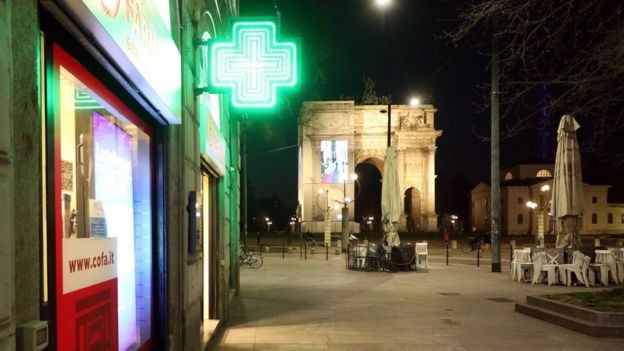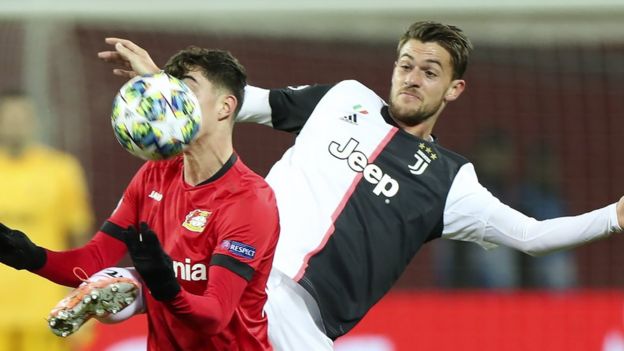Italy is to close all shops except food stores and pharmacies in Europe's toughest lockdown yet as virus deaths and cases continue to mount.
Prime Minister Giuseppe Conte said bars, restaurants, hairdressers and non-essential company departments would also close.
Meanwhile, President Donald Trump has suspended all travel from Europe to the United States for 30 days from Friday.
He said the EU had "failed to take the same precautions" as the US,
However, he said the United Kingdom would be exempt from the new travel ban.
Earlier the World Health Organization (WHO) said the outbreak was a pandemic.
WHO chief Dr Tedros said cases outside China had soared 13-fold in two weeks.
He said he was "deeply concerned" by "alarming levels of inaction".
A pandemic is defined as a disease that is spreading in multiple countries around the world at the same time.
What is Italy doing?
In a televised address, Mr Conte said any impact of the tightened restrictions - in force from Thursday until 25 March - on the rate of new cases would take a couple of weeks to be seen.
The country has already closed schools, gyms, museums, nightclubs and other venues across the country.
 EPA
EPA
It has more than 12,000 confirmed cases and a death toll of 827.
The confirmed cases include a player for Juventus football club, Daniele Rugani. The player was currently asymptomatic, the club said.
"Juventus Football Club is currently activating all the isolation procedures required by law, including the census of those who have had contact with him," a statement said.
 EPA
EPA
Nearly 900 people with the virus in Italy were in intensive care, the WHO's emergencies head Michael Ryan said.
"Iran [another outbreak hotspot] and Italy are suffering now but I guarantee you other countries will be in that situation very soon," he said.
What did the WHO say?
Dr Tedros said that calling the outbreak a pandemic did not mean the WHO was changing its advice about what countries should do.
He called on governments to change the course of the outbreak by taking "urgent and aggressive action".
"Several countries have demonstrated that this virus can be suppressed and controlled," he said.
"The challenge for many countries who are now dealing with large clusters or community transmission is not whether they can do the same - it's whether they will."
Comments